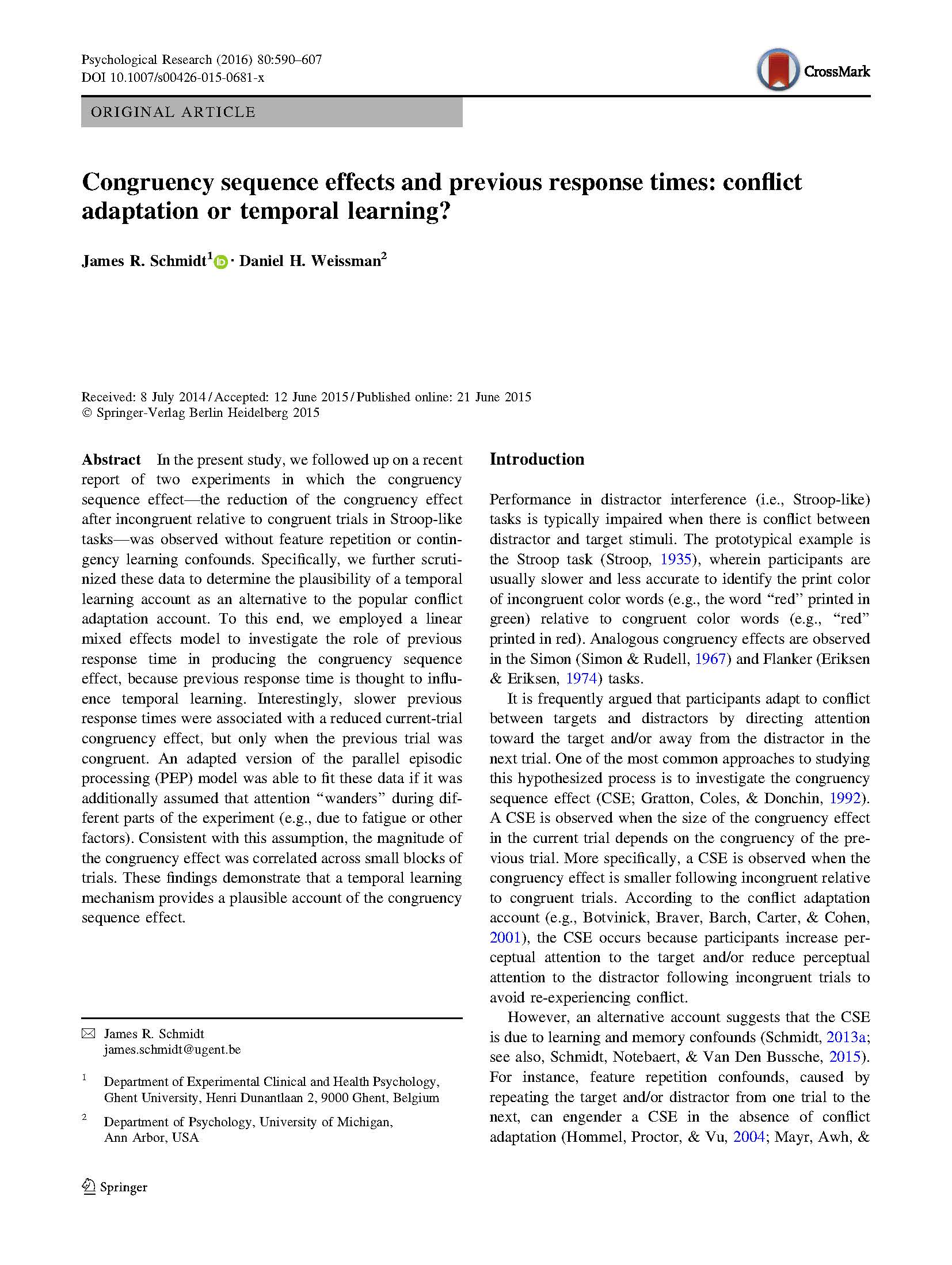In the present study, we followed up on a recent report of two experiments in which the congruency sequence effect—the reduction of the congruency effect after incongruent relative to congruent trials in Stroop-like tasks—was observed without feature repetition or contingency learning confounds. Specifically, we further scrutinized these data to determine the plausibility of a temporal learning account as an alternative to the popular conflict adaptation account. To this end, we employed a linear mixed effects model to investigate the role of previous response time in producing the congruency sequence effect, because previous response time is thought to influence temporal learning. Interestingly, slower previous response times were associated with a reduced current-trial congruency effect, but only when the previous trial was congruent. An adapted version of the parallel episodic processing (PEP) model was able to fit these data if it was additionally assumed that attention ‘‘wanders’’ during different parts of the experiment (e.g., due to fatigue or other factors). Consistent with this assumption, the magnitude of the congruency effect was correlated across small blocks of trials. These findings demonstrate that a temporal learning mechanism provides a plausible account of the congruency sequence effect.
Congruency sequence effects and previous response times: Conflict adaptation or temporal learning?
